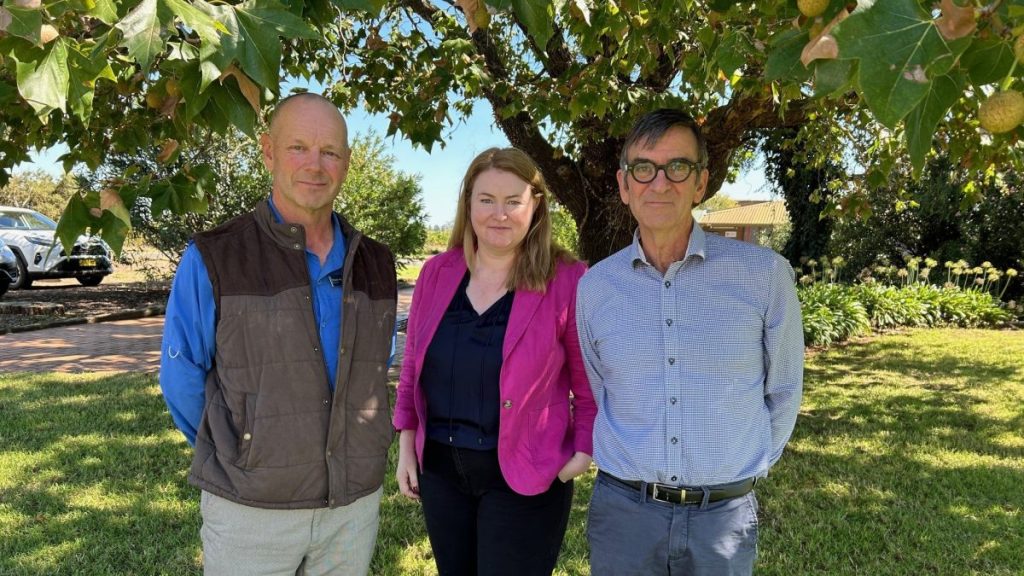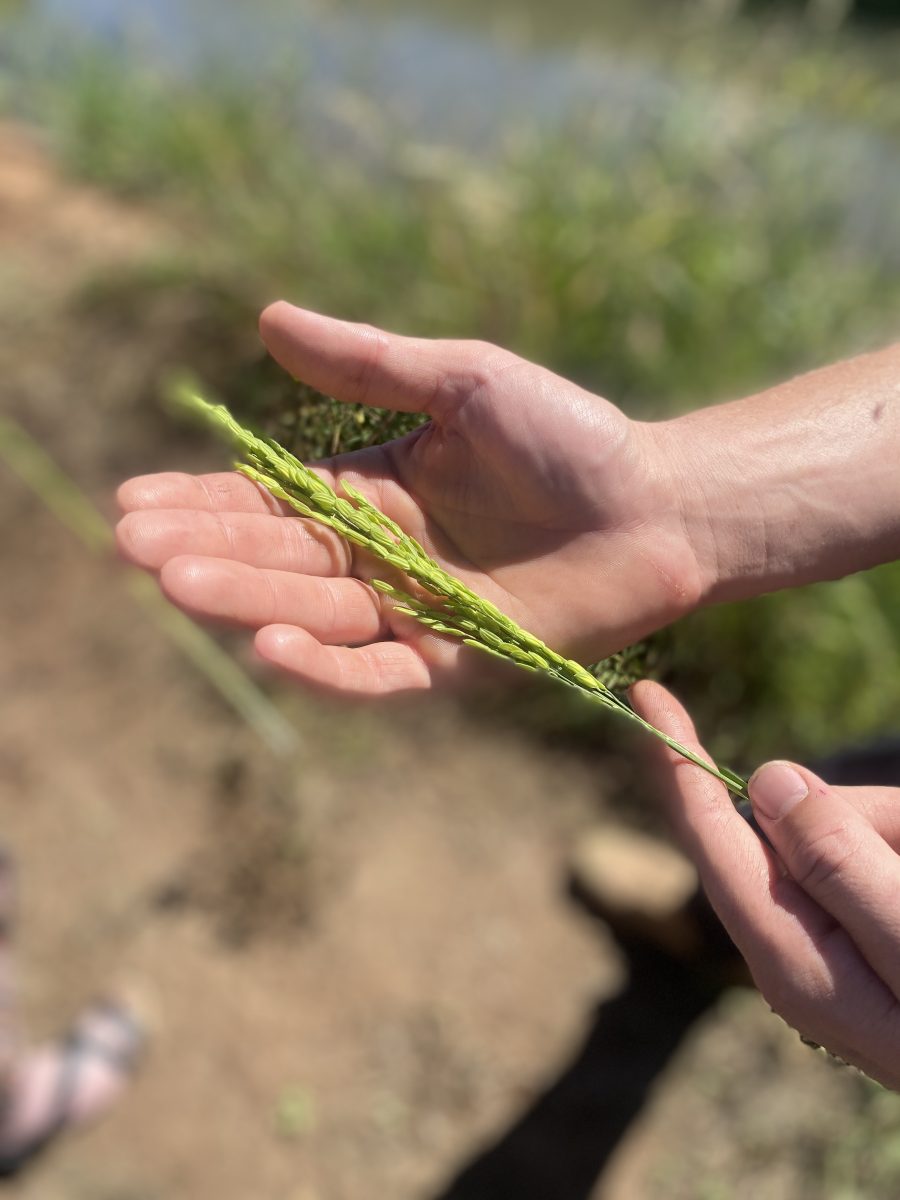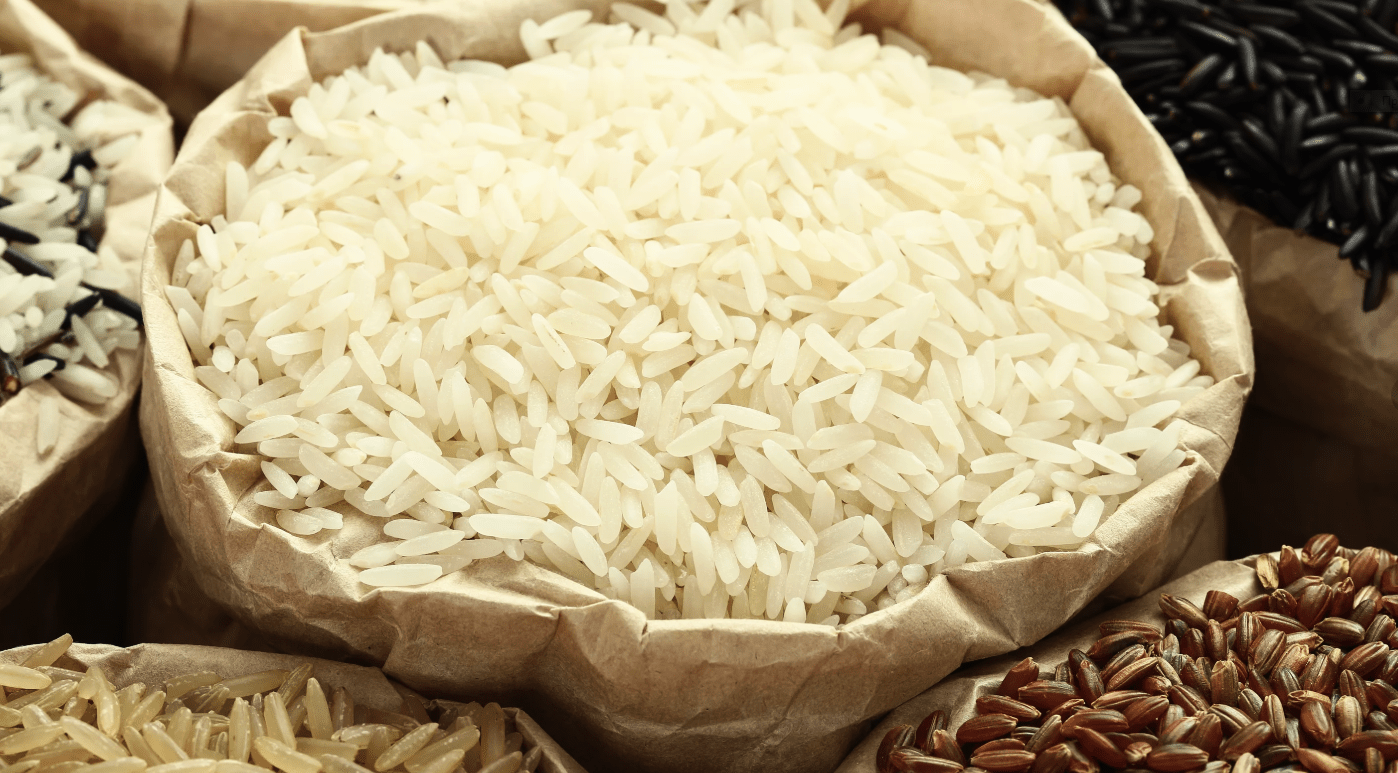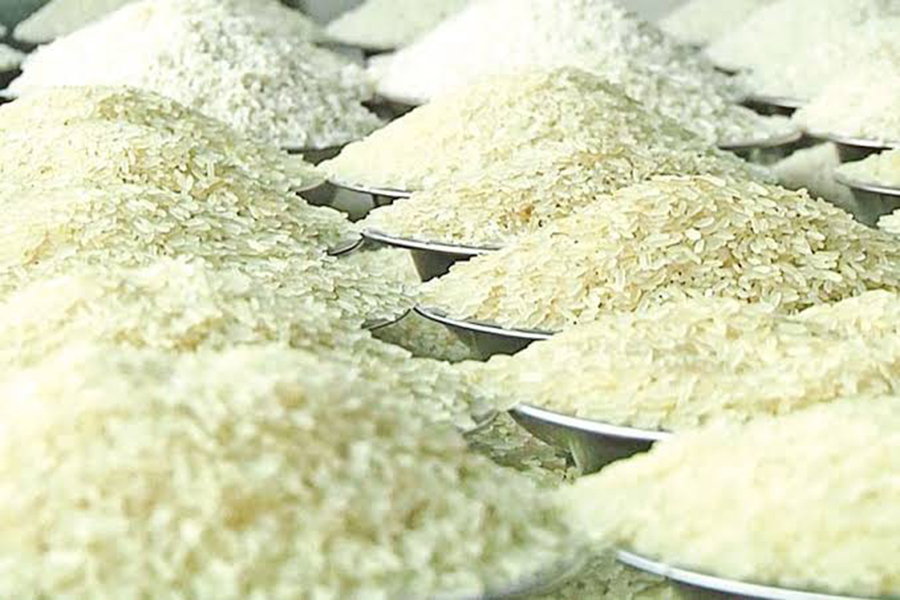Tags
Competition is healthy’: NSW Government to end Riverina giant SunRice’s monopoly over rice exports

Agriculture Minister Tara Moriarty discussed vesting changes with Ricegrowers Association President Peter Herrmann and Policy Manager Neil Bull in April. Photo: Twitter.
The NSW Government is introducing new legislation that will end industry giant SunRice’s effective monopoly over the export of all rice produced across the state.
Under a long-standing arrangement known as “vesting”, SunRice, headquartered in Leeton, are given the sole and exclusive right to sell and market NSW rice overseas.
On Tuesday (28 May), NSW Agriculture Minister Tara Moriarty announced she will introduce a new bill that will end rice vesting for northern NSW from 1 September 2024 and for the rest of NSW from 1 July 2025.
This will give individual rice farmers the power to sell their product directly to overseas buyers and negotiate their own contracts.
Griffith rice grower Glen Andreazza welcomed the decision.
“In this day and age, competition is healthy,” he said.
“SunRice being an ASX listed company, it doesn’t really need the vesting anymore. Vesting [also] doesn’t give the growers the advantages they need.”
The NSW Government decision comes after a report from the Australian Bureau of Agricultural and Resource Economics and Sciences (ABARES) found that vesting restricts the industry’s capacity to improve efficiency at a time when reduced water availability has led to falling production.
“Growers in the Northern Rivers region have long advocated for a change to vesting and southern growers have recognised the need for greater commercial flexibility to respond to future challenges,” Minister Moriarty said.
Leeton-based representative body Ricegrowers Association, however, has long supported vesting, arguing that growers can only achieve the best price for their product by restricting export competition.
Mr Andreazza said individual farmers would have to wait and see how the government’s decision affected them.
“It all depends on how SunRice reacts. All our crop has been invested within SunRice; it depends whether they continue the pool system or move to contracting,” he said.

Rice farming is undergoing a challenging time. Photo: Oliver Jacques.
SunRice Group Chairman Laurie Arthur had a nuanced reaction to the government’s announcement.
“Although our preference was for the NSW rice vesting arrangements in their current form to be retained, we believe that the NSW Government’s [previous plan] for a partial deregulation between southern and northern growers, over a prolonged timeframe, would have created uncertainty for our industry at a time when we need greater flexibility to adjust to a new operating environment,” he said.
“We believe today’s announcement of the NSW Government’s decision to end vesting by 1 July 2025, is the right decision for our growers, the SunRice business and the future of the NSW rice industry as it provides greater certainty into the future.”
SunRice employs slightly more than 2000 people and its annual revenue exceeds $1 billion.
Greens MP Sue Higginson, herself a northern NSW rice farmer, had no sympathy for the company in announcing her support for the government’s decision.
“The rice vesting model has benefitted a single group of growers associated with a multinational corporation and had led to perverse practices of established interests that rely on the irrigation waters of the Murray Darling Basin squashing innovation and environmentally conscious changes to the industry, including climate adaptive dryland rice growing in the Northern Rivers region,” she said.
“With the end of this monopoly, there is new opportunity for ethical, sensitive and competitive products to move this vital agricultural sector into the future and ensure that rice production in NSW is not strangled by a corporate monopoly.”
Mr Andreazza said there were tough times ahead for the industry, but he’d continue to be a part of it.
“Rice is a food staple; I love growing it and I always want to grow it. I don’t think it’s going to die, but a combination of factors is going to make it more difficult.
“We may potentially look at growing other crops. The industry has already flagged that they want to grow 30 per cent less than last year.”
https://regionriverina.com.au/competition-is-healthy-nsw-government-to-end-riverina-giant-sunrices-monopoly-over-rice-exports/62179/Published Date: May 29, 2024






